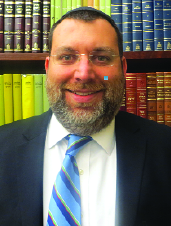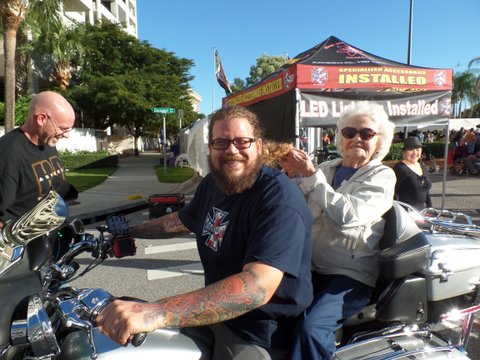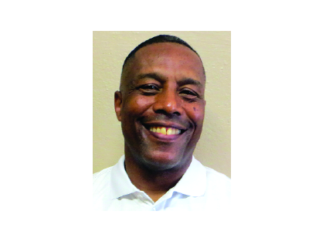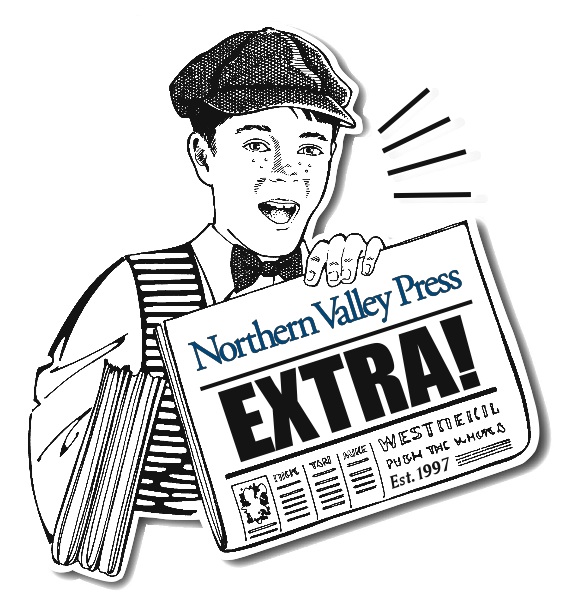
BY HILLARY VIDERS
SPECIAL TO NORTHERN VALLEY PRESS
Rabbi Chaim Poupko assumed the position of rabbi following 15 years at Congregation Ahavath Torah, holding positions of rabbinic intern, assistant rabbi and associate rabbi.
During this time, Poupko worked with both youth and adults, coordinating shul programming, assisting the senior rabbi in all facets of the rabbinic responsibilities, and teaching dynamic lessons.
Poupko also serves as president of the Rabbinical Council of Bergen County. He previously taught Tanach at the Torah Academy of Bergen County and served as a member of the National Executive Committee of the Rabbinical Council of America.
Poupko is married to Shoshana (nee Klein) and they are the proud parents of Ayelet, Elana, and Chana ob”m.
Poupko is a musmach of (certified by) Yeshiva University. He grew up in Skokie, Ill. and attended the Skokie Yeshiva, Yeshivat Kerem B’Yavneh and Yeshiva University.
• • •
Hillary Viders: I have seen you at numerous community events, such as the recent Veterans Day Memorial Service in Englewood, where you gave a very moving tribute. How do you balance all the community outreach that you do with your many responsibilities as the senior rabbi at Congregation Ahavath Torah?
Rabbi Chaim Poupko: Since I’ve become the senior rabbi, one of the challenges I work on most is to make sure that I pay attention to all the responsibilities that are most important and to designate some responsibilities to others. The longer I’ve been in this job, the more I realize that people want to be connected to the rabbi. So, I make sure that I spend a lot of time in contact with people. When it comes to outreach events, I just see that as an extension of the person-to-person work that I enjoy doing.
HV: Congregation Ahavath Torah is an Orthodox congregation. But, there are two types of Orthodox communities—traditional and “modern” Orthodox. For those of our readers who are not familiar with this, can you explain the difference?
CP: Our congregation is modern orthodox and we have the same views as the right wing, or ultraorthodox in regard to the observance of Jewish law and how we maintain our traditions. What classifies us as modern is how we relate to the outer world. We are more open to secular studies, towards attending university and dressing in the same way that people around us dress.
Another thing that distinguishes modern orthodox is our attitude toward the State of Israel. We see the modern State of Israel and Zionism as something that has religious significance and we are happy that we are now settled in our homeland.
HV: We are living in a turbulent time for Jewish people, with acts of anti-Semitism on the rise. How did you discuss the shooting at the Tree of Life Synagogue in Pittsburgh with your congregants?
CP: I sent an email to my congregation about this event and I delivered a sermon relating to it. In situations like these, you wonder, ‘what can I say that isn’t already being felt?’ People are already devastated. So, I try to give voice to what’s on people’s minds and to put it into context. The thing that I spoke about most was that the Jews in the Tree of Life Synagogue were murdered doing the very same thing that we do at the very same time each week, and that how meaningful it was that something that was a very personal tragedy for our Jewish community still had national and international recognition.
In the aftermath of the shooting, people everywhere were very embracing of Pittsburgh and the Jewish community. I went to some of the funerals of the victims in Pittsburgh, and when I landed at the airport, there were large screens showing the Pittsburgh Steelers logo that had been adjusted to show a Jewish star. As I was passing through security, members of the [Transportation Safety Administration] offered condolences. The fact that this uniquely Jewish tragedy had garnered such an outpouring from the other sectors of American society was extremely significant. I told my congregants that it was a sanctification of God that this tragedy brought out such a human connection with our community.
HV: At what age of a child is it appropriate for parents and teachers to discuss anti-Semitism and terrorism?
CP: That’s an excellent question. There’s a principle that the rabbis teach us, transcribed as, “chanoch l’naar al pi darko,” meaning that each child should be educated according to their unique path. So, there is no exact age, but we still need general guidelines. So, I believe in relying on the experts in our community. If I had to make that decision, I would consult with child psychologists and teachers to determine what is the right age for each child.
HV: It has been suggested that all houses of worship should have armed guards. Do you agree?
CP: For a number of years now, our congregation has taken security very seriously. We combine two approaches to security in our synagogue. First, we rely on volunteers from within the community because they are best suited to know who belongs and who does not belong inside the synagogue. We also make use of off duty cops. As far as other temples, I’m not a security expert, but I would answer this question in a similar fashion to the question about which age to expose children to the concept of anti-Semitism; that is, each community is different and has different needs. But, no one should take security for granted. One of the most striking lessons that we learned from the incident in Pittsburgh is that the armed shooter walked right in.
HV: At what age did you know that you wanted to become a rabbi?
CP: My father recalls vividly that when I was 5 years old, during our Passover Seder, I got up on the piano bench and delivered a sermon. So, everyone thought that I was going to be a rabbi my whole life. But, I, myself, don’t remember a moment in time that I knew I wanted to become a rabbi. Rather, it was just a natural progression for me. I grew up in a rabbinic family. My father is a rabbi, my grandfathers were pulpit rabbis and my great uncles were all rabbis. However, they didn’t pressure me into being a rabbi, only into being a Talmudic scholar.
HV: In your studies at Yeshiva University, what were the principles and concepts that inspired you most?
CP: What inspired me most about Yeshiva University was the atmosphere. It was characterized by the opportunity to pursue religious studies in which you were most interested. There were different rabbis with different perspectives and styles, and there was so much to learn and many available choices.
HV: What are the greatest challenges as a rabbi that you face today?
CP: Besides time management, my greatest challenge is to inspire people, to teach and to interact with people in a way that makes them more connected to God and to Jewish practice, to help explain the beauty of life lived according to Jewish law. That is the greatest challenge, and the one with which I enjoy reckoning the most.
HV: Englewood must be very different from Skokie, Ill., where you grew up and attended Yeshiva. What differences do you like most about Englewood?
CP: It’s interesting, because one of the reasons that I’ve always felt so comfortable in Englewood is that it reminds me of Skokie! … It’s similar to the Skokie community in terms of outlook and values.
Englewood is also notable because it is part of the tri-state area, which is a major Jewish hub. What I also like about Englewood is that we are able to unite the Jewish community in one synagogue, as opposed to towns like Teaneck where the Jewish community is spread out in numerous synagogues. Here, we have this institution that brings so many people from so many walks of life and so many backgrounds all together under one roof.
Photo by Hillary Viders



